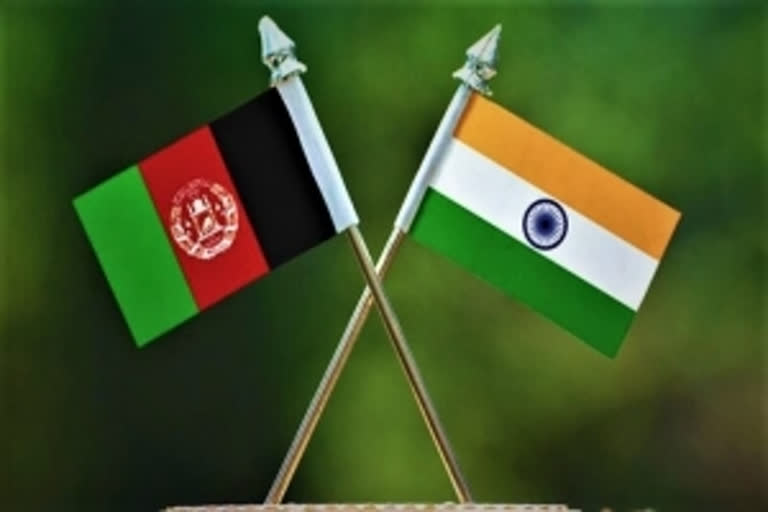New Delhi: India will be among the six countries that would join the table to decide the roadmap for the Afghan peace process and given its growing stakes in Afghanistan, New Delhi will take a strong interest in putting an end to the ongoing war in Afghanistan, by implementing the Afghan peace process most acceptably, with the help of one of the key players - the United States (US).
It is the US that has been pitching in India’s inclusion in the peace process to be a part of the mechanism, as it believes that as South Asia’s biggest player, there is no other country than India better suited to do so.
Now it remains to be seen, how crucial would be India’s role in the Afghan Peace process given its continuous support to the war-torn country.
ETV Bharat spoke to a few foreign policy experts to have an in-depth idea
India’s role in the Afghan peace process
India’s former ambassador to Kazakhstan Ashok Sajjanhar said, “The interest of India, the Afghan government, Russia and China is to have a peaceful and stable Afghanistan so that it is not used as a launchpad for terrorist attacks against different countries. India has lots of interest in Afghanistan including its historical and civilisational links with the country, a huge investment of over 3 billion dollars, signing of a pact for the building of 300 million Shahtoot Dam on Kabul River.”
“The United States wanted India to be a part of the negotiation for its interest that Afghanistan should not emerge as a place where terrorist attacks can be launched across the world. In terms of economic activity, infrastructure and connectivity, India is very much active in Chahbahar port. And I think these factors are definitely of high interest for India,” he explains.
Most recently, India has proposed the inclusion of a strategically located Chabahar port in the International North-South Transport Corridor that proposes to connect the country with Russia via Iran.
Also Read:'Indo-Pacific holds tremendous challenges for US'
Earlier, the Ministry of External Affairs S Jaishankar strongly reiterated that the Chabahar port has not only emerged as a commercial transit hub for the Indo-Pacific region but also facilitated the delivery of humanitarian assistance to Afghanistan, during the pandemic.
It, however, deserves a special mention that since the fall of the Taliban in 2001, India has been a pillar of support to Afghanistan in many ways especially in its economic growth. Perhaps, India has emerged as Afghanistan’s biggest regional donor.
Undoubtedly, India shares longstanding historical, cultural and civilisational links with Afghanistan and so far so, India’s policy towards Afghanistan highly reflects its desire for stability in the war-torn country. Therefore, instability in Afghanistan will have repercussion on India.
Most interestingly, Afghan Foreign Minister Hanif Atmar is scheduled to visit India on March 21 to discuss strategic partnership as well as recent developments about the Afghan Peace Process, with his Indian counterpart S Jaishankar.
Also Read:Working with int'l community to strengthen Afghan peace process: Biden Administration
His visit comes days after a meeting in Russia that would include all stakeholders including China, the US, Iran, Pakistan, Afghan leaders expect for India.
On being asked why Russia is apprehensive of India’s inclusion in the peace process, Sajjanhar opines that Russia is not opposing to India’s participation but it wanted that India should also warm up to the Taliban and India was not willing to differentiate between a bad and good Taliban and is giving easy access to the Taliban to the government of Kabul.
Not to forget, in Moscow’s format, India subsequently was included in the discussion.
